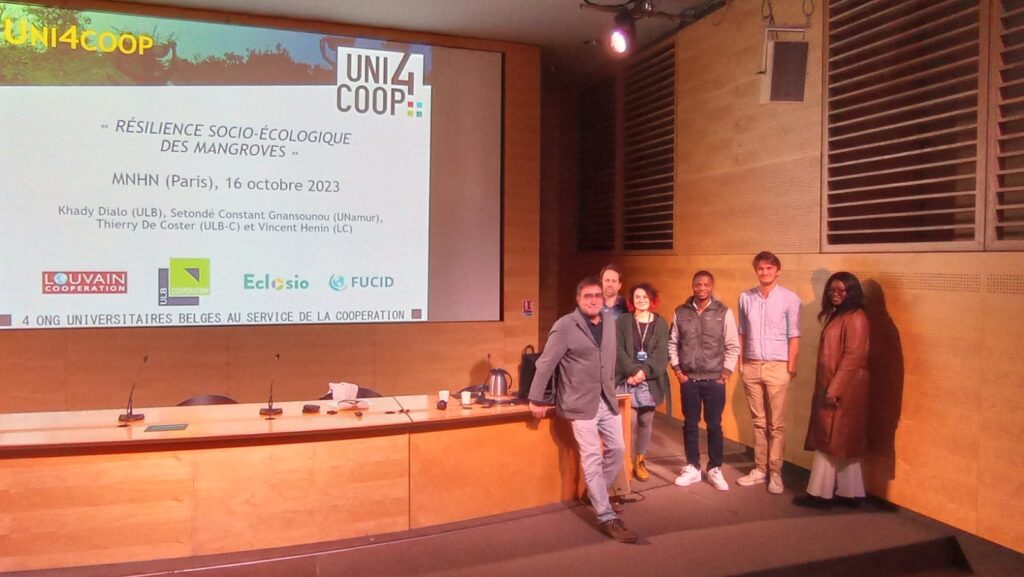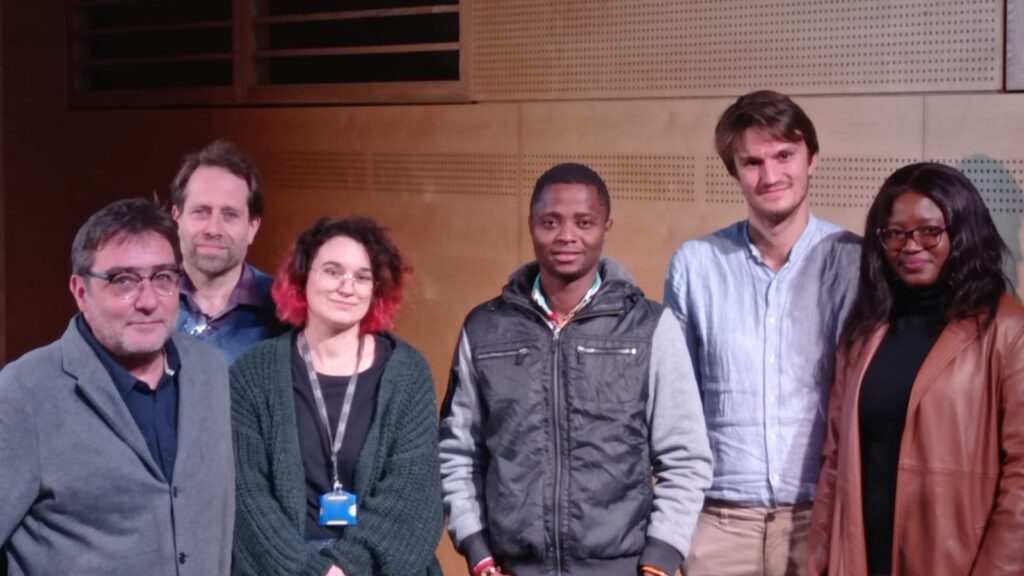On 16 October 2023 a Uni4Coop team participated in the seminar “Mangroves and human societies” in Paris. It was organized by the department archaeozoology, archaeobotany, societies, practices, and environments from the Muséum National d’Histoire Naturelle.
Mangroves play a crucial role worldwide in maintaining and sustaining coastal environments and associated biodiversity. These forests, established at the interface between marine and terrestrial environments, provide food resources, living space and refuge for numerous taxa (aquatic, avian, terrestrial). As a result, these ecosystems are thought to have played a major role in the sedentarization of human communities in the intertropical zone, providing favourable locations for fishing stations, invertebrate collection, and firewood. Thus, in a diversity of places and times, close links have existed and still exist between human societies and mangroves.
However, these environments remain fragile. While mangroves have been severely tested by the gradual aridification of the climate during the Holocene in certain regions of the world, the lagoons and mouths that shelter them have also gradually dried up and become clogged under the impact of human activities (agricultural conversion, overexploitation, urban development, etc.), contributing to the considerable modification of landscapes. Today, there is a growing awareness of the importance of their role in the food security of many communities and the protection of coastal areas, as demonstrated by the efforts of numerous organisations to safeguard and restore them.
During this seminar, the relationships that human communities maintain with these very special and fragile environments were explored, while at the same time restoring their historicity. The seminar focused on the following priority issues: mangroves as refuge areas in harsh environments; long-term degradation of mangroves by human activities; and mangrove preservation issues for the future.
On behalf of Uni4Coop, Vincent Henin, Thierry De Coster, Khady Diallo and Setonde Constant Gnansounou addressed current issues through the socio-ecological resilience of mangroves. After explaining Uni4Coop, SECORES, and the concept of social-ecological resilience, Khady Diallo (PhD student at ULB) and Setonde Gnansounou (PhD student at U-Namur) explained their research on mangroves in respectively Senegal and Benin and the link with social-ecological resilience.


